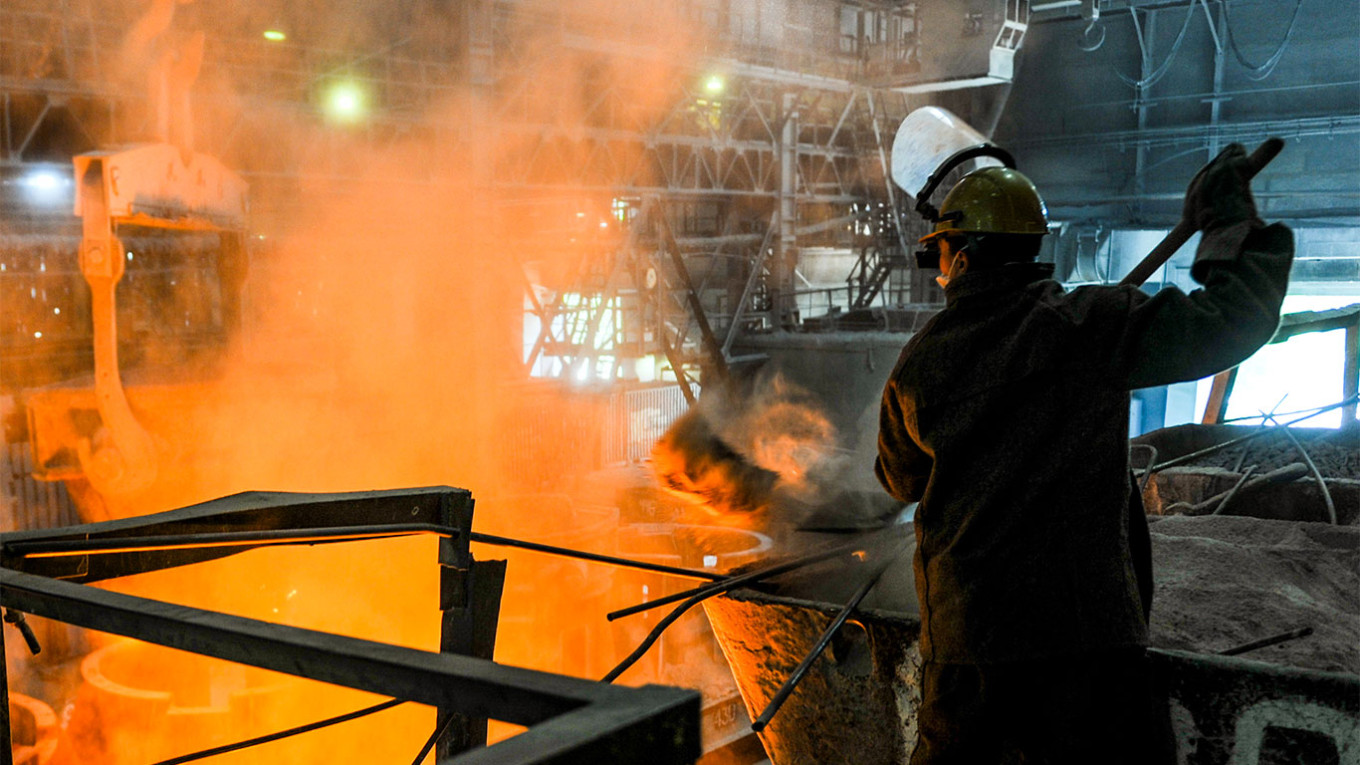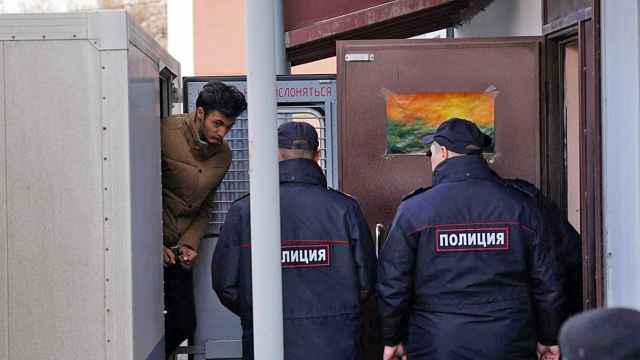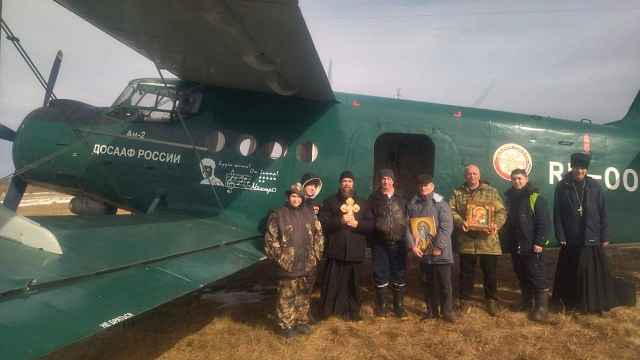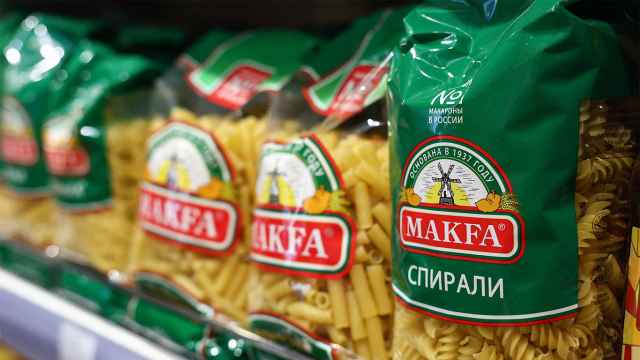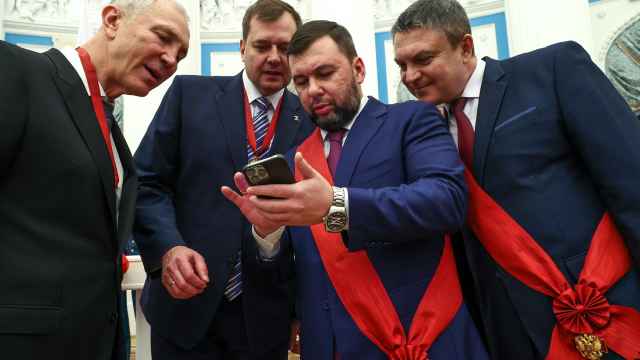The Kremlin’s wartime campaign of forced nationalization has hit the Ural Mountains region of Chelyabinsk, a major industrial center, harder than most.
Since the February 2022 invasion of Ukraine, Russian prosecutors have targeted 55 enterprises — metals, chemicals, agribusiness and even a major car dealership — for compulsory state takeover, according to figures from the RBC news website.
But in recent weeks, metals plants, agribusinesses and food firms owned by Chelyabinsk’s top businessmen and politicians have been subject to nationalization suits brought in hasty proceedings in Russian courts.
These assets are likely destined to be transferred to regime loyalists, analysts agreed.
In late March, Russian prosecutors announced two nationalizations of Chelyabinsk businesses — of Russia’s most famous pasta brand Makfa and the country’s largest winemaker the Ariant group — on the same day.
Those cases followed prosecutors laying claim to the Chelyabinsk Electro-Metallurgical Plant, which produces 80% of Russia’s ferroalloys, in late February.
The pretexts for these wartime nationalization suits range from claims of “unlawful privatization” to enterprises “coming under foreign control” and alleged breaches of Russian anti-corruption legislation.
“Where once the state was raiding foreign investors’ pockets, now it’s open season domestically,” Nicholas Trickett, a senior analyst at S&P, told The Moscow Times.
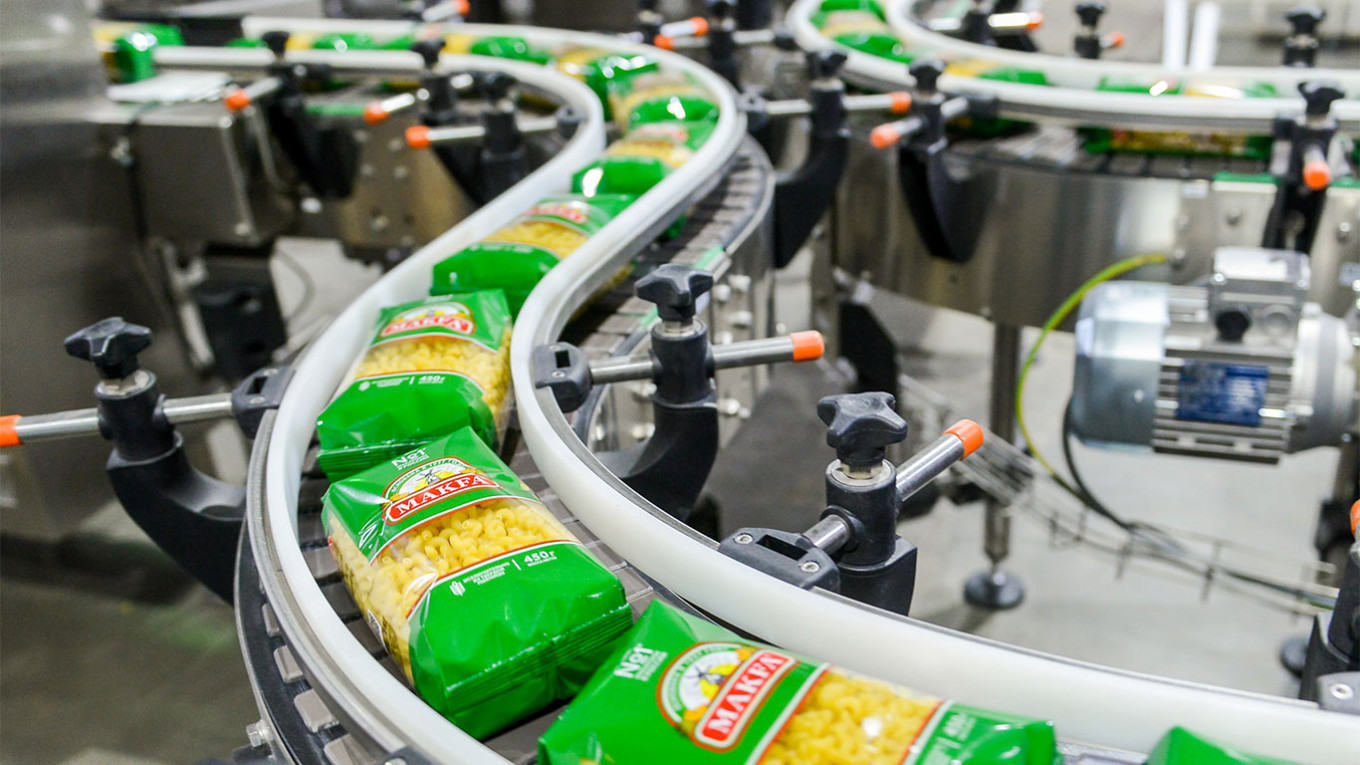
The nationalization trend could thus be seen as “creating a new interest group” of “winners” among the Russian elite “who are fully invested in [the war’s] continuation,” Trickett said.
Prosecutors alleged that the Chelyabinsk Electro-Metallurgical Plant — potentially critical to the defense industry — was unlawfully privatized in the 1990s, and had been exporting its products to “unfriendly states.”
Although plant owner Yuri Antipov has contested the nationalization suit, the details have not been made public as the case is being heard in a closed session.
RBC later reported that the plant could be transferred to Rostec, the state defense conglomerate controlled by Sergei Chemezov, who is believed to be close to President Vladimir Putin.
A separate case against Antipov for alleged “unlawful enrichment” was later extended to the Ariant group, an agribusiness and wine company with vineyards in southern Russia.
The Prosecutor General’s Office has requested that Ariant be transferred to state control as part of its attempt to recover funds, and the entire case will also be heard in closed session.
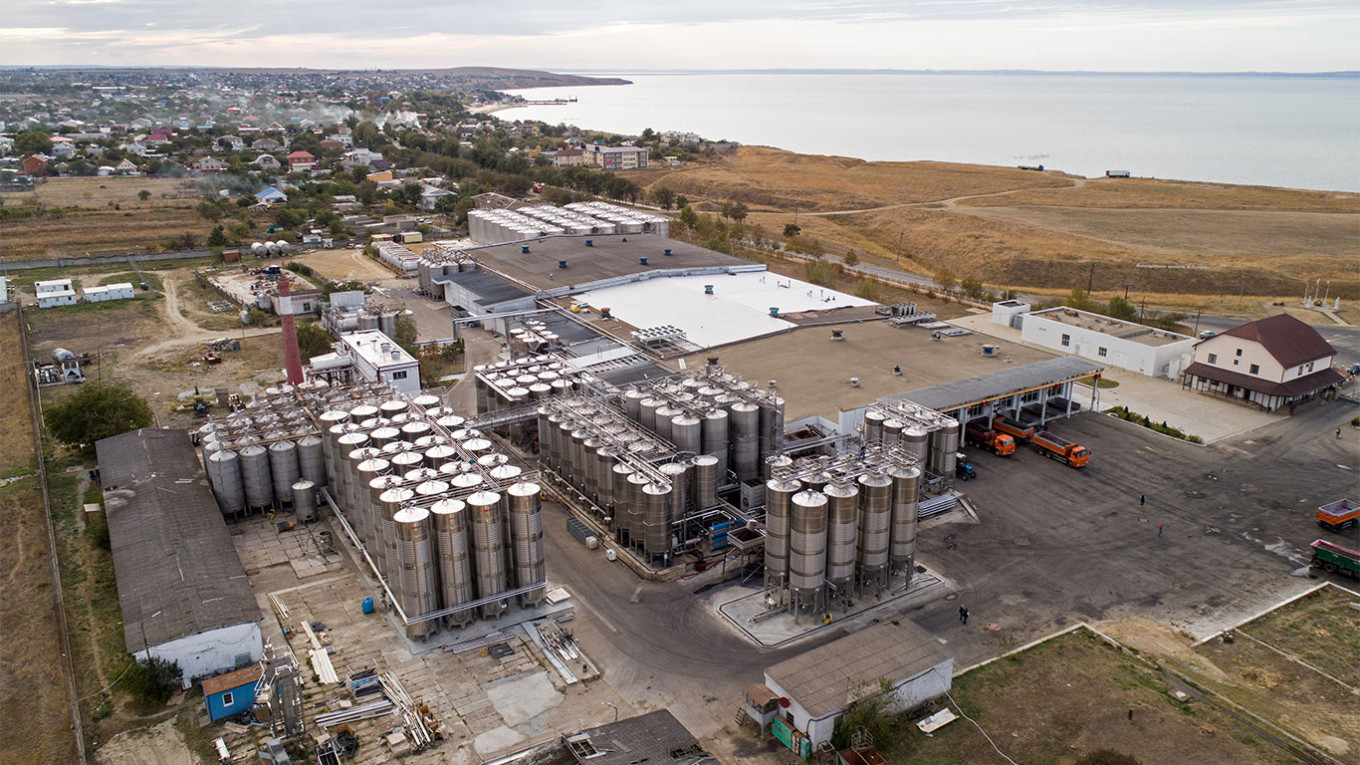
The two companies — Chelyabinsk Electro-Metallurgical Plant and Ariant — had once been run as part of a single holding by business partners Antipov and Alexander Aristov until the businesses were split in 2020.
Ariant’s controlling shareholder Alexander Kretov told RBC on March 30 that although “it is a difficult time,” the company was operating as normal.
“We’ve filed a petition and will acquaint ourselves and deal with the demands made to us by the Prosecutor General’s Office,” he said.
On Thursday, RBC reported that companies in the Ariant group had started to be transferred to Russian state ownership.
In another planned nationalization, the owners of the Chelyabinsk-based Makfa Group — the ubiquitous pasta brand found across Russia — are facing claims from prosecutors that they allegedly breached anti-corruption legislation while in public office, triggering an attempt to requisition the business in the state’s favor.
Those efforts have targeted former Chelyabinsk regional Governor Mikhail Yurevich and former regional lawmaker Vadim Belousov.
The latter was convicted on bribery charges in 2022; Yurevich is a suspect in the same case. Both men are currently believed to be living abroad. The Makfa brand, which they built together in the 1990s and 2000s, continues to operate.
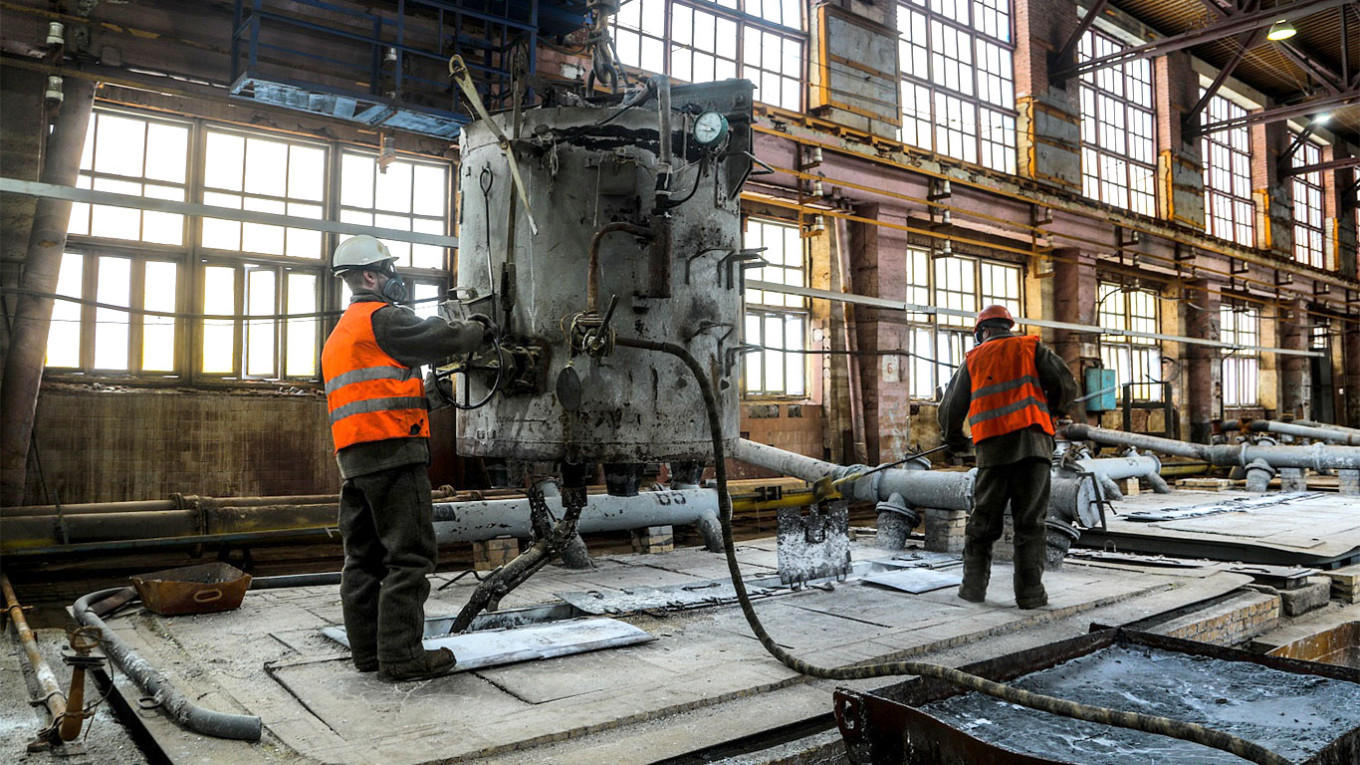
Forced nationalizations have caused disquiet in Russia’s big business community, with leading businessmen reportedly bringing the issue to President Vladimir Putin at a closed-door meeting in November 2023, according to the Vedomosti business daily.
In a rare burst of criticism, the Moscow Stock Exchange expressed concern over a specific nationalization case, the Solikamsk Magnesium Works, in December. Prosecutors claim that around 10% of the shares in the factory were acquired by private investors unlawfully.
“It turns out that the law is not being observed at all,” a top exchange official said on the Solikamsk matter.
Putin, in turn, has sought to reassure Russian big business over the past year, saying there would be no full-scale “deprivatization.”
In official comments at the end of March, the Russian president said that nationalization was “justified in those situations where assets were acquired in violation of the law and are, moreover, being used to harm the state.”
“In each case, we need to act strictly in accordance with the law, within clear legal procedures,” Putin added during the meeting with the General Prosecutor’s Office.
At the same meeting, Prosecutor General Igor Krasnov said prosecutors had already nationalized 1 trillion rubles ($10.8 billion) worth of strategic assets.
Krasnov alleged that some of those companies had been financing Ukraine’s war effort, although no evidence has been provided for this claim.
“The public rhetoric is all for show,” Trickett countered.
Analysts believe that the nationalization campaign has “breathed new life” into long-running issues surrounding the rule of law and property rights for major investors in Russia — such as the Yukos case — only now on a war footing.
The “crash nationalizations point to growing political pressures to mobilize the [Russian] economy more effectively without fundamentally changing anything institutionally,” said Trickett.
By contrast, “large political reforms in wartime under sanctions are unthinkable,” he said.
Alexey Eremenko, an associate director at global risk consultancy Control Risks, cautioned against “alarmist” interpretations of the current nationalizations.
“It’s definitely worrying, but there remain clear limitations,” he said.
“If you start parsing the trend more closely, you see additional circumstances: in most cases, there is some kind of strategic consideration for taking away assets,” Eremenko said, pointing to the strategic nature of the Chelyabinsk businesses under threat of nationalization.
“We are not yet seeing a new elite in Russia: all the people who are getting the assets are the usual suspects.”
A Message from The Moscow Times:
Dear readers,
We are facing unprecedented challenges. Russia's Prosecutor General's Office has designated The Moscow Times as an "undesirable" organization, criminalizing our work and putting our staff at risk of prosecution. This follows our earlier unjust labeling as a "foreign agent."
These actions are direct attempts to silence independent journalism in Russia. The authorities claim our work "discredits the decisions of the Russian leadership." We see things differently: we strive to provide accurate, unbiased reporting on Russia.
We, the journalists of The Moscow Times, refuse to be silenced. But to continue our work, we need your help.
Your support, no matter how small, makes a world of difference. If you can, please support us monthly starting from just $2. It's quick to set up, and every contribution makes a significant impact.
By supporting The Moscow Times, you're defending open, independent journalism in the face of repression. Thank you for standing with us.
Remind me later.


